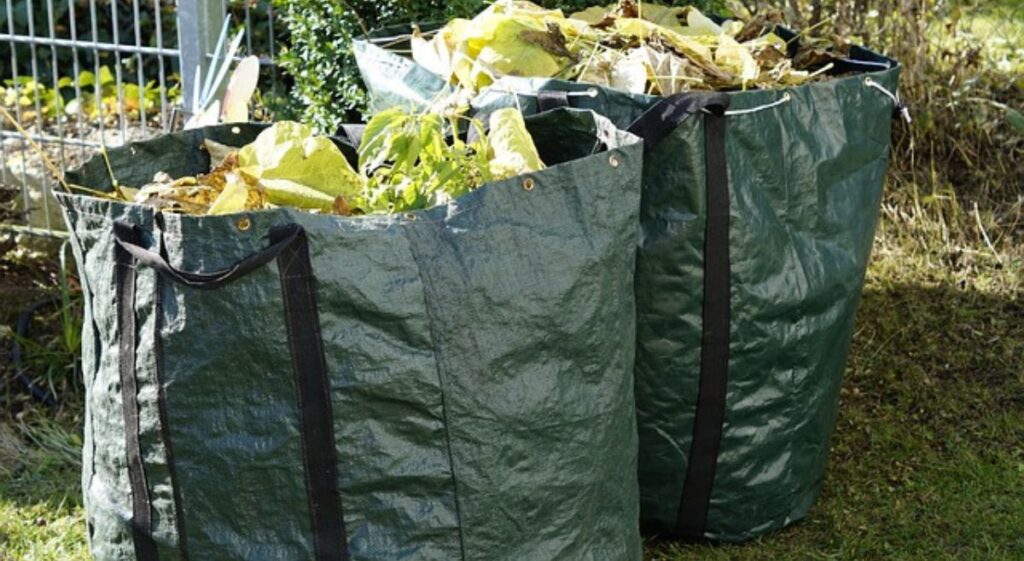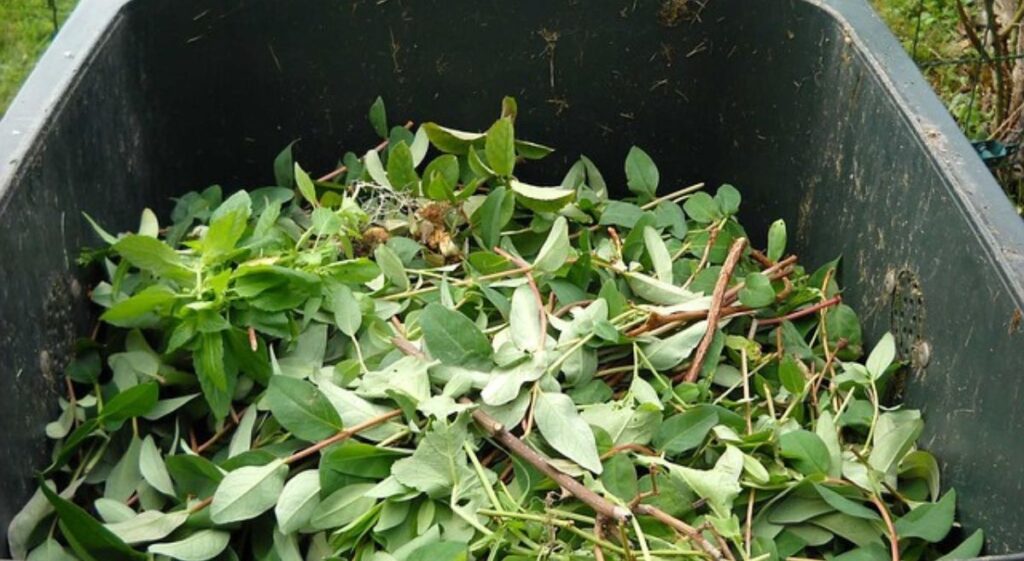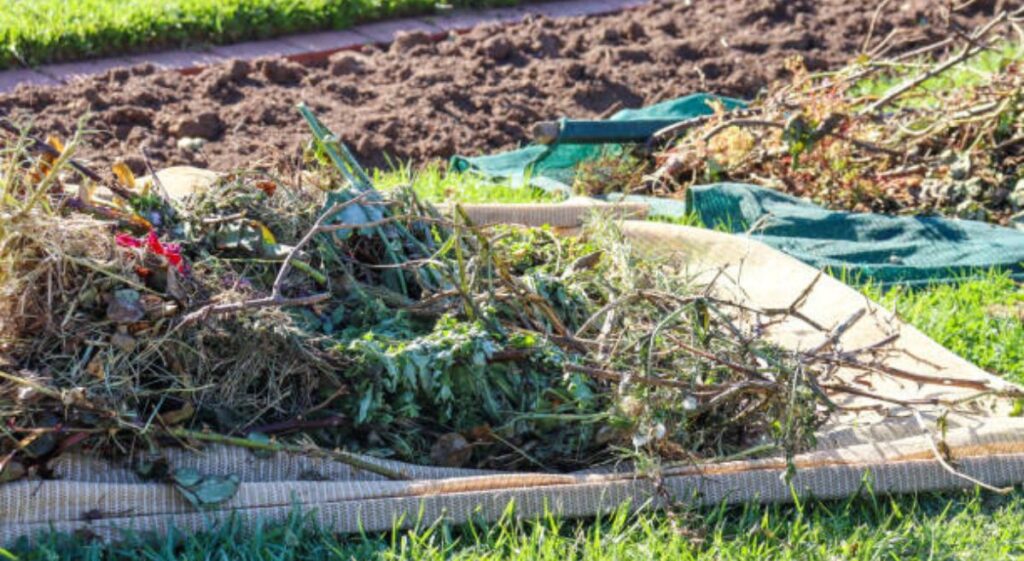Introduction:-
Composting at Home: Turning Garden Waste into Green Gold

In an era where sustainability and environmental consciousness take precedence, home soil fertilization emerges as a simple yet impactful approach to reduce waste and enrich your garden. Converting garden waste into nutrient-dense compost not only benefits the planet but also enhances the health and vitality of your plants. This guide will lead you through the fundamentals of home soil fertilization, aiding you in transforming your organic waste into “green gold” for your garden.
Why Composting Matters
Composting: A Key Strategy for Environmental Conservation
Composting offers numerous environmental benefits, making it a crucial practice for sustainable living. Here are ten key advantages:
1. Landfill Waste Reduction:
- Diverts organic waste from landfills, preventing anaerobic decomposition and methane production.
- Extends the lifespan of landfills by reducing the volume of waste disposed of.
2. Greenhouse Gas Emissions Reduction:
- Reduces methane, a potent greenhouse gas, by diverting organic waste from landfills.
- Enhances carbon sequestration by enriching the soil, promoting carbon storage.
3. Soil Health Enhancement:
- Improves soil structure, water retention, and nutrient content, reducing the need for synthetic fertilizers.
- Promotes carbon sequestration in compost-enriched soils, aiding in climate change mitigation.
4. Synthetic Fertilizer Reduction:
- Minimizes runoff pollution from chemical fertilizers, preventing harmful algal blooms and protecting water quality.
- Encourages organic farming practices, reducing the reliance on synthetic chemicals.
5. Water Conservation:
- Improves soil moisture retention, reducing the need for frequent watering.
- Prevents water pollution by reducing the use of chemical fertilizers and pesticides.
6. Biodiversity Support:
- Fosters soil biodiversity by providing habitats for beneficial organisms, contributing to soil health and plant growth.
- Promotes plant and wildlife diversity by supporting a range of vegetation, attracting pollinators and other insects.
7. Carbon Footprint Reduction:
- Lowers energy consumption associated with waste collection, transportation, and processing.
- Contributes to a circular economy by facilitating sustainable waste management.
8. Soil Erosion Prevention:
- Strengthens soil structure, minimizing erosion and maintaining healthy land for agriculture and natural habitats.
9. Sustainable Lifestyle Promotion:
- Encourages individuals to adopt waste reduction practices and embrace sustainable living.
10. Climate Change Mitigation Support:
– Reduces global warming potential by minimizing landfill waste and reducing the need for synthetic fertilizers.
In conclusion, composting plays a vital role in environmental conservation by reducing waste, lowering greenhouse gas emissions, enhancing soil health, promoting biodiversity, and supporting sustainable living practices. Its transformative impact on waste management and environmental preservation make it a powerful tool in achieving a more sustainable and eco-friendly future.
How do I start composting garden waste at home?”
To start composting at home, follow these steps:

1. Choose a Composting Method:
- Compost Bin: Use a plastic or wooden container with a lid for smaller spaces.
- Compost Pile: Create a compost pile on the ground if you have more space.
- Tumbler Compost: Utilize enclosed rotating bins to accelerate composting.
2. Select a Location:
- Pick a convenient, slightly shaded spot to maintain moisture levels and ensure easy access.
3. Start with a Base Layer:
- Begin with a layer of coarse material like straw, twigs, or small branches for airflow and drainage.
4. Add Garden Waste:
- Include green materials high in nitrogen like grass clippings, vegetable scraps, and fresh leaves.
- Balance with brown materials high in carbon like dried leaves, straw, newspaper, and cardboard.
5. Maintain the Right Balance:
- Aim for a 2:1 ratio of brown to green materials to accelerate decomposition and reduce odors.
6. Keep it Moist and Aerated:
- Maintain moisture similar to a wrung-out sponge. Water if needed.
- Turn the compost regularly to provide essential oxygen.
7. Monitor the Temperature:
- Increased heat indicates active decomposition. If it cools down, add more green materials or aerate.
8. Wait and Harvest:
- Composting can take months to a year, depending on the method. Look for dark, crumbly compost with an earthy smell.
9. Use Your Compost:
- Apply finished compost to garden beds, around trees, or mix it with potting soil to enhance plant growth.
What should I not put in my compost bin?
To ensure successful composting, certain materials should be avoided to maintain a healthy and productive process. Here’s a revised list of items to keep out of your compost bin:
1. Meat, Fish, and Dairy Products:
- Attract rodents, flies, and other pests, creating unpleasant odors during decomposition.
2. Oils, Fats, and Grease:
- Decomposing slowly, causing a slimy texture and attracting pests and foul odors.
3. Diseased Plants:
- Can spread pathogens that survive composting and infect garden plants.
4. Weeds with Seeds:
- May survive composting, leading to weed growth in your garden.
5. Invasive Plants:
- Invasive species can spread through compost and take over your garden.
6. Pet Waste:
- Contains harmful pathogens and parasites that may not be eliminated during composting, also contributing to unpleasant odors.
7. Treated Wood or Sawdust:
- Contains chemicals that can leach into compost and harm plants, while also decomposing slowly.
8. Coal or Charcoal Ash:
- Contains harmful substances like sulfur and iron, altering the pH balance of compost and making it too alkaline.
9. Synthetic Chemicals:
- Avoid materials treated with pesticides, herbicides, or synthetic fertilizers, as these chemicals can persist in compost and harm your garden.
10. Glossy or Coated Paper:
- Non-biodegradable and contains chemicals that are not safe for compost.
11. Non-Biodegradable Materials:
- Plastic, metal, and glass should never be added to compost, and even so-called “biodegradable” plastics can take too long to decompose.
12. Large Branches or Logs:
- Decompose very slowly, so it’s best to chop them into smaller pieces or leave them out entirely.
13. Onions and Garlic:
- Have a strong odor that can deter beneficial organisms and decompose more slowly.
14. Citrus Peels:
- High acidity can slow down composting and harm microbes, while decomposing more slowly than other food scraps.
15. Bones:
- Decompose very slowly and attract unwanted pests.
By avoiding these materials, you’ll promote a healthy composting process that results in rich, nutrient-dense compost that benefits your garden.
What are the benefits of using compost in my garden?
Benefits of Home-Made Compost

In the realm of gardening, homemade compost emerges as a transformative force, bestowing a multitude of advantages upon both the garden and the environment. Here are some of its key features:
1. Enhances Soil Quality:
- Compost provides an abundance of essential nutrients, such as nitrogen, phosphorus, and potassium, which are crucial for optimal plant growth.
- It improves soil texture, making it more fertile, manageable, and capable of retaining moisture.
- Compost promotes the growth of beneficial microorganisms that play a vital role in breaking down organic matter and making nutrients readily available to plants.
2. Reduces Waste:
- Composting at home diverts organic waste from landfills, reducing methane emissions and greenhouse gases.
- Instead of discarding garden clippings, leaves, and kitchen scraps, they can be transformed into valuable compost.
3. Cost-Effective:
- Homemade compost diminishes or eliminates the need for costly commercial fertilizers.
- It enhances soil’s moisture retention, potentially lowering water bills by reducing the frequency of watering.
4. Eco-Friendly:
- Composting minimizes energy consumption and resource utilization associated with transporting and processing organic waste.
- It promotes sustainability by supporting the natural cycle of organic matter returning to the earth.
5. Encourages Healthy Plant Growth:
- Compost strengthens plants, enhancing their resistance to pests and diseases.
- The nutrient-rich environment and improved soil structure provided by compost foster healthier, more vigorous plant growth.
6. Reduces Soil Erosion:
- Compost enhances soil cohesion, preventing erosion by securing the soil and minimizing runoff.
7. Balances Soil pH:
- Compost acts as a natural buffer, maintaining an optimal pH level in the soil, whether acidic or alkaline.
8. Mitigates the Need for Chemical Inputs:
- By enriching the soil naturally, compost reduces the reliance on synthetic fertilizers and pesticides, promoting a more organic and wholesome garden.
9. Customizable:
- Gardeners can tailor their compost to specific plant and soil requirements by adjusting the ratio of green to brown materials.
10. Supports Biodiversity:
- Composting fosters a thriving ecosystem in the garden, attracting earthworms, insects, and other organisms that contribute to plant health.
Ultimately, homemade compost serves as a powerful tool for gardeners, offering an array of environmental, economic, and practical benefits that contribute to a flourishing, sustainable garden.
Conclusion
During a time where manageability and ecological cognizance are a higher priority than any time in recent memory, treating the soil at home has arisen as a basic yet strong method for lessening waste and improve your nursery. Transforming garden squander into supplement rich manure helps the climate as well as improves the wellbeing and imperativeness of your plants. This guide will walk you through the basics of home treating the soil, assisting you with changing your natural waste into “green gold” for your nursery.
References
- EPA: Benefits, methods, and maintenance.
- NRDC: Environmental benefits and beginner’s guide.
- Rodale Institute: Scientific explanation and garden benefits.
- University of California: Impact on soil health and waste reduction.
- Gardeners’ World: Comprehensive guide from what to compost to maintenance.
